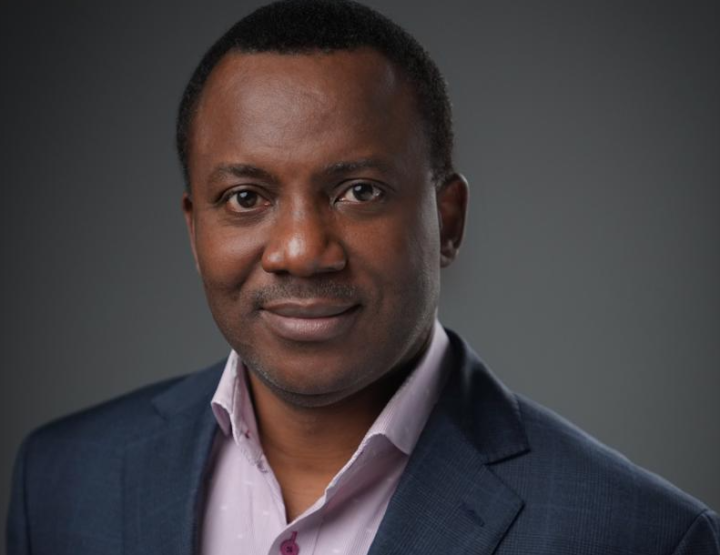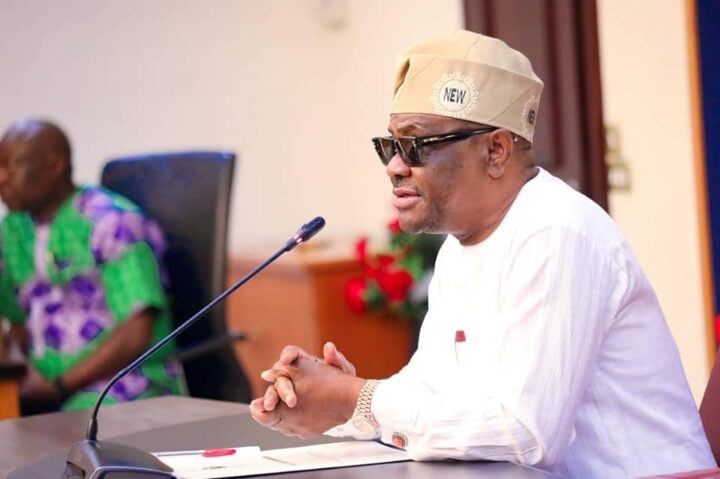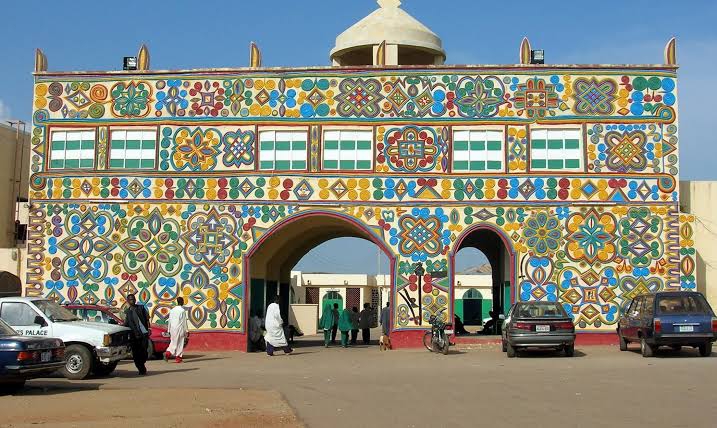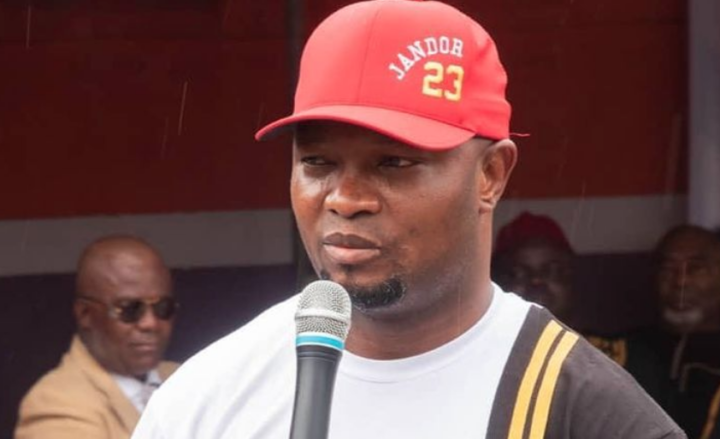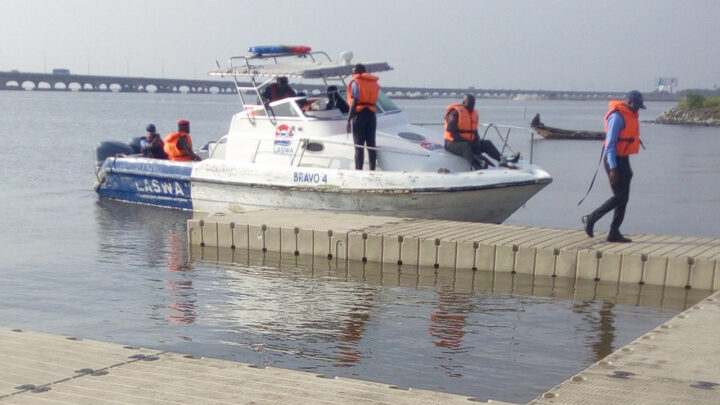Kenneth Amaeshi, acclaimed professor, is a don of business. He holds multiple chairs as Professor of Business and Sustainable Development, at the University of Edinburgh; Professor of Sustainable Finance, at the European University Institute; Visiting Professor of Leadership and Financial Markets in Africa, London School of Economics; and Extraordinary Professor of Business in Africa, University of Cape Town. He was tapped as chief economic adviser to the governor of Imo state, Chief Hope Uzodimma, pursuant to the governor’s economic drives, about a year ago. Amaeshi accepted the position on a pro bono basis, saying he was moved by the development passion of the governor and out of a burning zeal to serve his people. Below are excerpts from an interview with reporters in Abuja.
You resumed as the chief economic adviser to the Imo state government a year ago. Can you tell us how it all started?
I was appointed in November 2021 but sworn in on January 5, 2022. So, you are correct. It is exactly one year since I started the role as the chief economic adviser to the Imo state government. I do the job pro bono and on part-time. The start was rather sudden. I just got a call from the governor, Senator Hope Uzodimma, sometime in October 2021 from the blues to consider contributing to the development of Imo State. Initially, I was pleasantly very surprised. Firstly, I never expected him to remember me in the way he did, as I was not close to him in any way. The few times we met before then, although friendly, were faint, tenuous, and rather distant. I thought they were not strong and sufficient enough to warrant the request. Secondly, I did not contribute to his campaign and election in any way to warrant reaching out to me. In that regard, I did not consider myself a critical stakeholder to attract his attention for the role he eventually offered me.
So, what were your thoughts when the governor reached out to you?
Advertisement
To be honest, when he asked me to consider joining his government, I had very strong mixed feelings. I had just taken a leave of absence from the University of Edinburgh, where I am a tenured professor, to accept a 5-year appointment at the prestigious European University Institute. It would be difficult to cut short or abandon this rare opportunity. Secondly, there was a lot of negative news on social media about Imo State and the world was coming out of the COVID-19 lockdown. Unfortunately, and unlike me, I did not have the chance to verify things for myself. I visit Nigeria often but did not have the opportunity to do so between January 2020 and December 2021. So, my palpable anxieties were not unreasonable. In addition to these anxieties, some of my friends and professional colleagues were extremely skeptical of the idea and did their best to discourage me, for very good reasons I must add. According to most of them, they did not want me to destroy my records and soil my reputation. For them, Nigerian politics and politicians are better avoided. These genuine concerns gave me a headache and sleepless nights, especially because I knew they came from a good place.
How did you resolve the seeming dilemma then?
Well, subsequently, I had extra phone calls with the governor. He understood my concerns and encouraged me to visit home at his expense. Work and international assignments came in the way, and I could not travel to Owerri. When we eventually caught up in London in late November 2021, he convinced me that I was heavily addicted to social media narratives. I silently shrugged it off. When I eventually visited Owerri in December 2021, I knew he was right, and I was wrong. Imo State, especially Owerri, which social media had presented as a first-class war zone, was far from that description.
Advertisement
What would you consider your major achievements on the job so far?
I was sworn in on January 5, 2022. Immediately after that, the governor handed me over to his principal secretary to set up my office and other logistics. And that was it. I swung into action, created a work plan, and the governor approved it. In the 12-month period, my office established a biweekly radio programme on the economic opportunities in Imo State. The radio programme streams on both conventional and social media platforms and reaches an audience of 5m+. The office has also launched a signature magazine on the Imo State economy titled – The Imo Economy Digest – which has been well received. The second edition was published in December 2022. We also initiated the Corporate Imo Impact Partnership – a voluntary network of corporates and organisations keen to contribute to the progress of Imo State. This network has been able to attract a significant grant from a global corporate to support youth digital skills development in the Imo State – another initiative jumpstarted by the Office of the Chief Economic Adviser. In November 2022 we launched the Imo Industrial Policy with a tagline: “making industries work for all”. The industrial policy may be the first since the creation of Imo State in 1976.
It seems you have achieved a lot in just 12 months. How did you do it?
I do this job on a part time basis, which means I spent most of the 12 months outside the country. However, as you can see, this does not affect the productivity of my office in any way. I have a strong and very professional team that ensures everything runs well even in my absence. We leverage digital technologies a lot. For example, I run biweekly webinars from anywhere in the world, as long as I have good access to the internet. In addition, I have great ExCo colleagues who make life easy for me. They are always willing to stand-in when required. They are simply wonderful. Beyond these, however, the governor has been very supportive and encouraging. He has not for once interfered with our agreed plan.
Advertisement
And this is a major plus. One of the concerns some people expressed when I was considering the job was that most governors and politicians do not listen to experts. Fortunately, this is not my experience so far. Not only that Senator Hope Uzodimma listens, but he also carefully engages with ideas and makes valuable contributions. Of course, it is difficult to reach him sometimes because of his very busy schedule; but when you eventually have an audience with him, it is always amazing how you come out confident that he is both hands-on and very much on top of issues. His practical wisdom is usually invaluable. Luckily for me, we do not discuss politics, and he has never for once made any political demands of me. So, I am spared of those shenanigans, which can sometimes come in the way of work. When we met in London in November 2021, he made it clear that technocrats should focus on their forte and not on politics. As far as I can tell, he has kept to his words and view on this.
What is it about the governor that makes it easy for you to work with him?
In this one year, I have had the chance to work closely with Senator Hope Uzodimma. Through my interactions with him, I have come to understand him as one who believes in the power and freedom of the market. He thinks government should not be in the business of business. Hence his preference for privatization. He likes public-private partnerships and believes the government should primarily be an enabler. Despite his love of the market, he strongly believes it should work for all. This inclusive market thinking is at the heart of his Shared Prosperity Agenda, which is expressed through the growing number of signature infrastructure and social development projects and initiatives trailing his government.
From what I have seen so far and my direct experience of him, I am convinced he is a people-centred person. This is something we share. Perhaps, his perspective affords him the rare opportunity to see the sufferings of others and do his best to alleviate them. I wish one day he would articulate his governance ideology and philosophy perhaps as Hopism. It would be a valuable contribution to practical political philosophy – at least in Nigeria. Of course, this is my personal experience of him, so far. Obviously, others will have their experiences of him, as well. However, it is not a competition of experiences, as experiences are usually unique.
Advertisement
What lessons have you learnt and what message do you have for other technocrats and experts out there?
The first lesson is not to judge a book by its cover. As they say, seeing is believing, and experience is the best teacher. It is very easy to judge people and situations from a distance. Secondly, we make an opportunity an opportunity. Otherwise, the opportunity ceases to manifest. I do not wait to be told what to do. I come up with ideas. Every good leader needs solutions and not problems. I try as much as possible to take solutions to the Governor. It is very easy to moan and feel helpless because of the many challenges in the system. However, I try to see every challenge as a potential opportunity. That mindset helps me a lot.
Advertisement
I am also grateful for the experience, which at least adds to my performance in the classroom. It is an opportunity to test theory in practice and to theorise practice in academia. So, it works very well for me. Based on this experience, I strongly encourage other technocrats to consider supporting the government when the opportunity arises. They should not be discouraged by negative comments. Although there is something to learn from others, every experience is unique, and we should not just rely only on the experiences of others for our choices and decisions. Sometimes, it might be wise to step out of our comfort zones and positively challenge ourselves. That, I think, I have done through this enriching experience, despite the initially perceived risks, which I have continued to manage and mitigate in my own way. And so far, so good. Just wish me continued luck!
Advertisement
Add a comment
